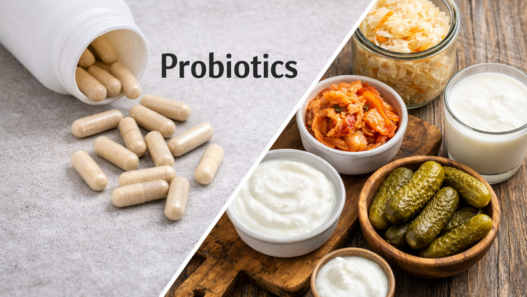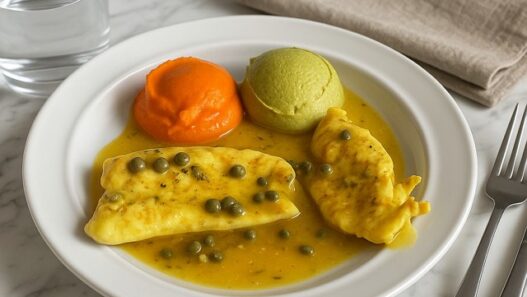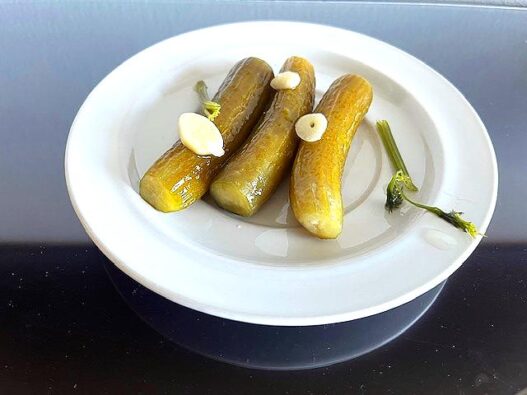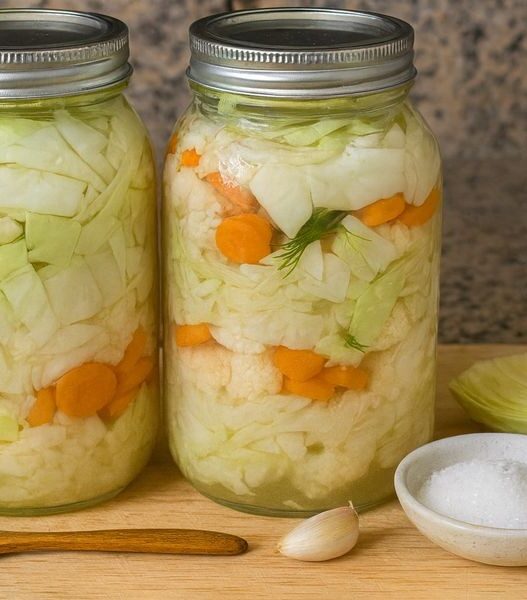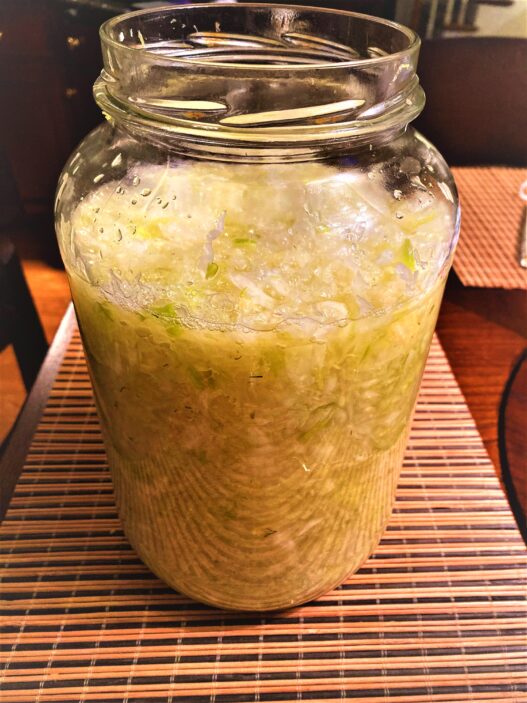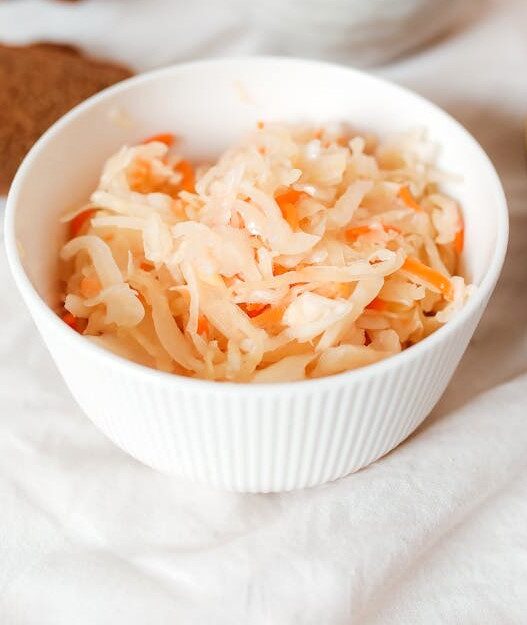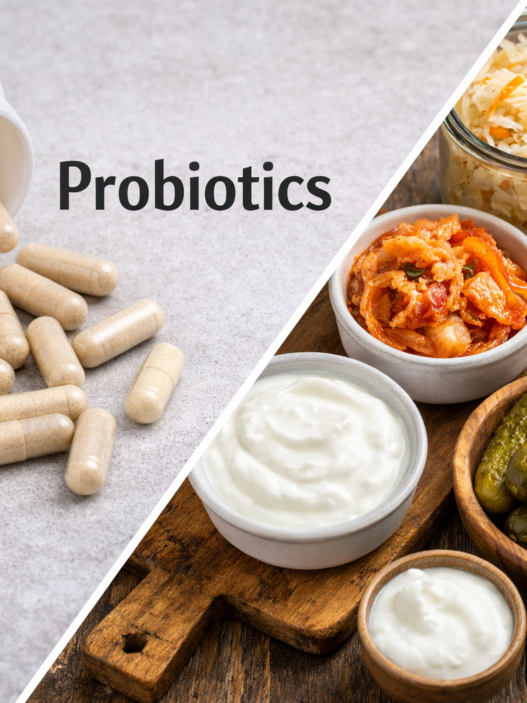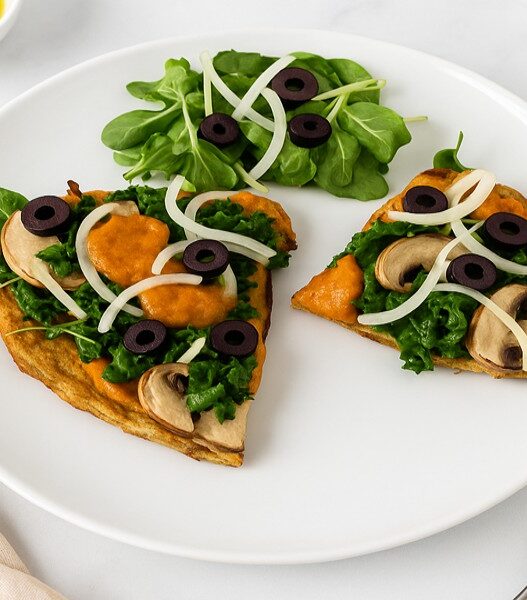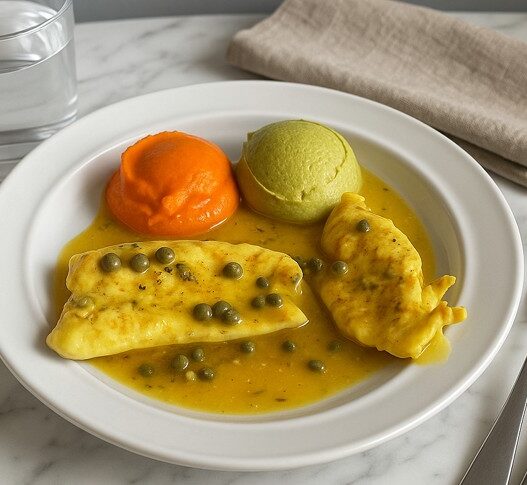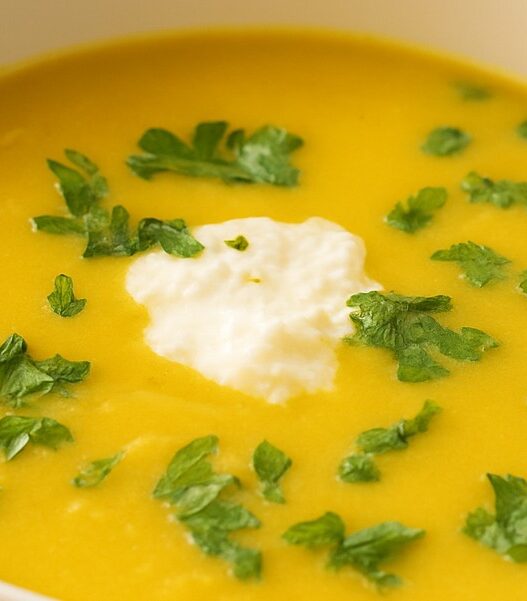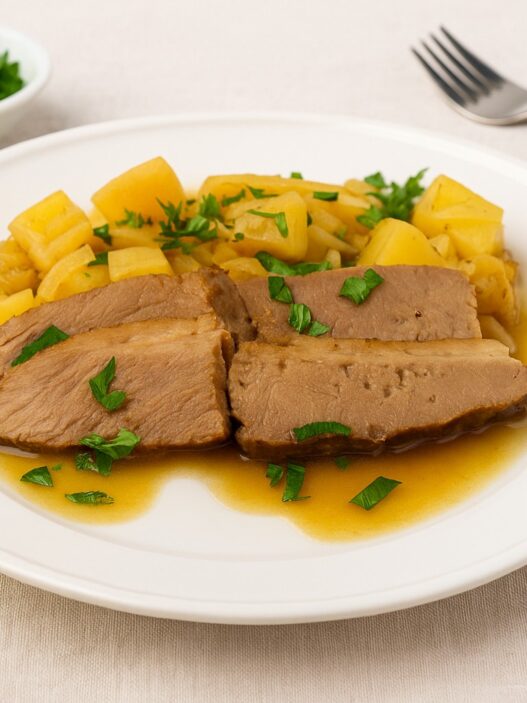Follow me on:
Homemade AIP Pickles, a probiotic-rich, anti-inflammatory snack
If you’re following the AIP diet or managing an autoimmune condition, homemade AIP pickles are an excellent choice. They are a simple and effective way to add more gut-friendly and probiotic-rich foods to your diet. Unlike store-bought pickles, these are made without preservatives, additives, or vinegar. Instead, they are naturally fermented, offering the benefits of probiotics without any harsh chemicals.
Fermented foods like pickles have been used for centuries for their health benefits. They help balance gut bacteria, improve digestion, and strengthen the immune system. For anyone on the Autoimmune Protocol (AIP) diet, AIP pickles are a perfect option. They are made from simple, whole ingredients and can be easily incorporated into meals.
In this post, I’ll explain why homemade pickles are not only delicious but also an essential addition to your AIP lifestyle. These pickles are naturally tangy, crunchy, and nutritious, providing essential health benefits. They’re easy to prepare and offer a tasty snack that supports your well-being. Keep reading to learn why fermented foods like AIP pickles should become a regular part of your diet.
Now, let’s take a closer look at the health benefits of these homemade AIP pickles.
Why AIP Pickles Are Good for You
1. Rich in Probiotics
AIP pickles are naturally fermented, providing your gut with beneficial bacteria. These probiotics help balance your gut microbiome. A healthy gut flora is key for digestion and overall health.
2. Supports Gut Health
For those with autoimmune conditions, gut health is crucial. AIP pickles help reduce gut inflammation and promote healing. They support the gut lining, which can help ease symptoms of autoimmune diseases.
3. Anti-Inflammatory Properties
AIP pickles are made with ingredients like dill and horseradish, which have natural anti-inflammatory properties. These ingredients help reduce inflammation, making them an excellent choice for those with chronic inflammation.
4. Improves Digestion
The fermentation process enhances nutrient absorption and digestion. AIP pickles also help with regular bowel movements and reduce bloating. They support the digestive system in a natural, gentle way.
5. AIP-Friendly
These pickles are free from grains, sugar, and dairy, making them perfect for the AIP diet. They offer a healthy, satisfying snack that fits within the Autoimmune Protocol and provides gut-healing benefits.
Incorporating these fermented foods into your daily diet can greatly improve your overall health. Let’s dive into how to enjoy these pickles.
How to Enjoy AIP Pickles
Enjoy your homemade AIP pickles as a snack or pair them with your favorite AIP-friendly dishes like grilled meats, vegetable stir-fries, or even as a tangy topping for AIP-friendly sandwiches. They’re versatile, satisfying, and packed with health benefits!
By incorporating these probiotic-rich pickles into your diet, you’re not only indulging in a flavorful treat but also nurturing your gut, improving digestion, and supporting your overall well-being.
If you made this recipe, I would love to hear from you in the comments below! Your feedback and any tips you might have are always appreciated. Feel free to share how it turned out or any variations you tried – I’m excited to hear about your experience!
Homemade AIP Pickles
Recipe by AIP Wellness JourneyCourse: Condiments, Lunch, Snacks, DinnerCuisine: AmericanDifficulty: Easy10
servings15
minutes5
minutes4
kcal3
pickles5-7
daysAIP Fermented Pickles are a gut-friendly, probiotic-rich snack made with whole mini cucumbers, garlic, dill, horseradish, and a simple non-iodized salt brine. Naturally fermented, these pickles are perfect for an AIP diet, providing health benefits like gut health support and anti-inflammatory properties. Free from vinegar and additives, they’re a flavorful and nutritious option for anyone following an autoimmune protocol or looking to add fermented foods to their diet. Enjoy them as a healthy snack, side dish, or a crunchy topping for your AIP meals.
Ingredients
- For the Brine:
4 cups (1 liter) filtered water
2 tablespoons non-iodized sea salt or salt for pickling (about 30 grams)
- Vegetables:
2 pounds mini cucumbers (about 4-5 cucumbers per jar or as many needed to fill in the jar). You can also use regular cucumbers, but you might need to cut them into spears.
- Aromatics:
4-6 garlic cloves divided in 2 for 2 jars (whole or sliced, based on preference)
1 fresh dill (about 1-2 sprigs per jar)
4 bay leaves (two per jar)
1 small piece of horseradish root (about 1-2 inches per jar), optional
Directions
- Wash thoroughly to remove any dirt. Trim the blossom end of each cucumber to prevent softening. Large cucumbers can be sliced into spears, while mini cucumbers can stay whole with ends cut.
- Wash jars well with hot, soapy water and rinse.
- In a medium saucepan, bring the filtered water to a boil and dissolve the sea salt. Let the brine cool to room temperature before pouring it over the cucumbers in the jar. This is a very important step.
- Place cucumbers into the jar tightly, either standing or laying flat.
- Place a sprig of dill, 1-2 bay leaves, a piece of horseradish root, and 1-2 garlic cloves (cut or whole) in between the layers of cucumber in each jar. Place the weights on top.
- Pour the cooled brine into the jars until the water covers completely the weights and there is no organic matter (garlic, dill, bay leaves or cucumber) exposed to the air. All has to be submerged in the brine. This is very important so that there is no mold that is developing during the fermentation process.
- Place the lid on loosely so gases can escape during fermentation. Leave the jars at room temperature.
- On the second day start removing the foam (krausen) that forms on top which is the by-product of active lactic acid fermentation. This is a normal sign of fermentation. Keep removing it each day until there is no foam forming on the surface.
- Once the foam forming has stopped (normally within the first 5 days) Gently shake to mix in any salt or minerals that settled at the bottom.
- If they’re tangy and flavorful to your liking, transfer the jars to the refrigerator to slow down fermentation.
Notes
- Fermented pickles can be stored in the refrigerator for up to 3 months.
- Over time, they’ll continue to develop their tangy flavor.
- Use fresh cucumbers for maximum crunch.
- Filtered water is essential to avoid chlorine, which can inhibit fermentation.
- Non-iodized salt is important for keeping the brine clear and promoting good bacterial growth.
- If you see white film (kahm yeast) on the surface, it’s harmless. Simply skim it off.



